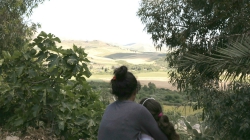Sustainable development for Mediterranean forests benefits everyone
Climate change is affecting the entire Mediterranean Basin, but differences in land use mean the effects are not the same throughout the region. In European countries, land abandoned by the exodus of the rural population has resulted in new, unmanaged forests prone to fire, pest outbreaks, disease and drought. Meanwhile, the Maghreb countries of Morocco and Tunisia face a totally different scenario of indiscriminate logging and over exploitation of forest resources. Together with a hotter and dry climate, the result is in an alarming increase in desertification. The EU-funded MENFRI(opens in new window) (Mediterranean network of forestry research and innovation (MENFRI)) project was established to address these challenges. They focused on promoting business innovation and helping societies adapt to environmental change to ensure the sustainable use of forest ecosystems. This initiative provided forest managers with the tools and information to help mitigate the effects of climate change and conserve the environment. Furthermore, decision makers were able to access scientific data, enabling them to design a comprehensive and coherent European forestry policy. Identifying solutions Project coordinator Dr Enrique Doblas explains, ‘Exchanging knowledge about forest management between both shores of the Mediterranean will generate guidelines for an innovative forest sector, combining ecosystem protection with the use of forest resources to provide jobs and regional development.’ Traditional uses of forests in the Maghreb are sources of eco-innovation, which can enhance the management of European new forests and help decrease land abandonment. Likewise, geographical information technologies from north of the Mediterranean could help stop deforestation in the south and encourage greater sustainable use of forests. Moreover, the use of forestry machinery will empower women, who collect forest products. Opportunities and potential bottlenecks were identified by assembling an advisory group of experts. According to Dr Doblas: ‘We are proud to have included members of the European parliament, business people, researchers, managers, and forest owners’ representatives. Social workers in contact with rural populations dependent on forest resources were also involved.’ The advisory group’s report formed the basis of the Forestry in the Mediterranean guide(opens in new window). ‘Three important ideas to emerge were valorisation, education and government support at higher levels,’ states Dr Doblas. Knowledge was also shared with different societal actors through courses on business creation, geographic information systems, forest certification and EU projects. An innovative approach MENFRI also developed the NODE(opens in new window) (Node for opportunities, development and environment) to promote social inclusion, job creation, economic development and environmental protection. Their innovative multidisciplinary approach provides capacity-building to local, national and regional public administrators, local communities, researchers, entrepreneurs and schools in different locations. The Forestry Hub(opens in new window) is a matchmaking tool associated with the NODE platform, which aids interaction among all the relevant actors to facilitate the creation of businesses related to the forest sector. ‘This is the first step in the creation of Mediterranean Forestry Business Incubator,’ says Dr Doblas. The promotion of forest products certified as environmentally sustainable and socially fair can act as an engine for sustainable development by attracting investors and encouraging locals to use forests in an environmentally friendly way. To support the valorisation of Mediterranean forest products, MENFRI investigated the creation of a national certification system in collaboration with the Programme for the Endorsement of Forest Certification (PEFC), the world’s largest forest certification system. Dr Doblas concludes ‘The sustainable use of natural resources to overcome underdevelopment in the Mediterranean forestry sector will help local communities and promote jobs by unleashing innovative solutions.



